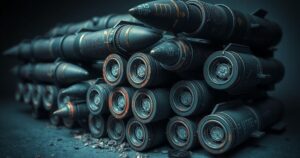Uganda’s DRC Mission Under Scrutiny Amid Allegations of Double Dealing
Ugandan forces’ three-year operation against the ADF in eastern DRC has resulted in limited security improvements, yet allegations of Uganda’s covert support for rival rebel group M23 raise serious questions about its strategic motives. While some areas experience reduced violence, the ADF remains a deadly threat, and the region faces geopolitical tensions influenced by both Uganda and Rwanda’s competing interests, primarily driven by economic considerations surrounding resource control.
Three years have elapsed since Ugandan forces entered eastern Democratic Republic of Congo (DRC) to combat the Allied Democratic Forces (ADF), a group with ties to the Islamic State. While Operation Shujaa has made significant strides against the ADF, successfully pushing them from some territories, allegations have surfaced regarding Uganda’s covert support for M23, a rival rebel faction. Locally, the situation has seen some improvements, with a gradual resumption of normal life in regions formerly beleaguered by violence, yet the ADF continues to pose a formidable threat, adapting their tactics and expanding their operational range.
Despite Ugandan military gains against the ADF, including the liberation of certain strongholds, the group has responded by shifting its focus to previously unaffected areas, leading to an alarming increase in violence. The United Nations has documented that the ADF killed approximately 1,000 individuals in 2023 alone. While local residents report some improvement in security, highlighted by the lifting of curfews and the reopening of schools, the brutal tactics employed by the ADF, which include targeting civilians, continue to elicit concern.
On the geopolitical front, Uganda’s involvement in DRC is marred by accusations that it is providing support to M23. The United Nations has indicated that Ugandan territory has served as a safe haven for M23, raising doubts about Kampala’s commitment to the ADF’s eradication. DRC President Félix Tshisekedi has called for evidence regarding Uganda’s intentions, emphasizing a need for transparency in this complex affair. Observers suggest that Uganda’s military actions primarily aim to secure areas proximate to its borders, with implications that broader regional stability may not be a primary concern.
Furthermore, Uganda’s interests in DRC span economic domains, particularly related to gold trade and infrastructure projects. As both Uganda and Rwanda vie for influence in eastern DRC, economic dynamics and resource control play significant roles in shaping their strategies. Uganda’s attempts to forge better connectivity with DRC through planned road constructions reflect its dual pursuit of security and economic advantages. However, this approach also risks straining its relationship with Rwanda. Ultimately, Uganda appears to be recalibrating its strategies based on various pressures, ensuring its national interests remain intact.
The situation in eastern DRC has been characterized by a long-standing conflict primarily involving various rebel groups, including the ADF, which has been particularly lethal due to its affiliations with global jihadist movements. Uganda’s military intervention, primarily through Operation Shujaa, was initiated to address regional insecurity exacerbated by cross-border terrorism. However, Uganda’s involvement has drawn scrutiny, especially amid allegations of contradictory support to other rebel groups, complicating its strategic objectives in the region. The geopolitical landscape is further complicated by the interests of neighboring countries, particularly Rwanda, which also exerts influence over DRC’s internal dynamics, adding layers of complexity to an already volatile situation. Additionally, economic interests drive Uganda’s military and diplomatic maneuvers in DRC, especially concerning valuable resources like gold, which are crucial for both countries’ economies. Consequently, Uganda’s approach reflects a careful balance of military engagement and economic considerations, alongside an attempt to navigate regional tensions and maintain stability within its borders.
In summary, while Uganda’s military intervention in eastern DRC has led to some successes against the ADF, significant challenges remain, including the group’s persistent brutality and territorial expansion. Allegations of Uganda’s dual support for rival rebel factions further complicate its involvement, raising questions about its strategic motives. The intersection of security dynamics and economic interests underscores the complexity of Uganda’s regional role, with implications for broader stability in eastern DRC.
Original Source: www.rfi.fr





